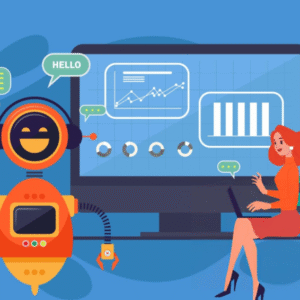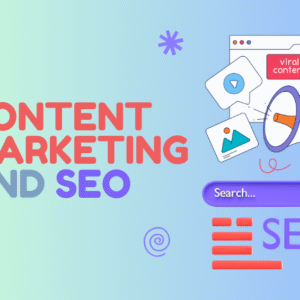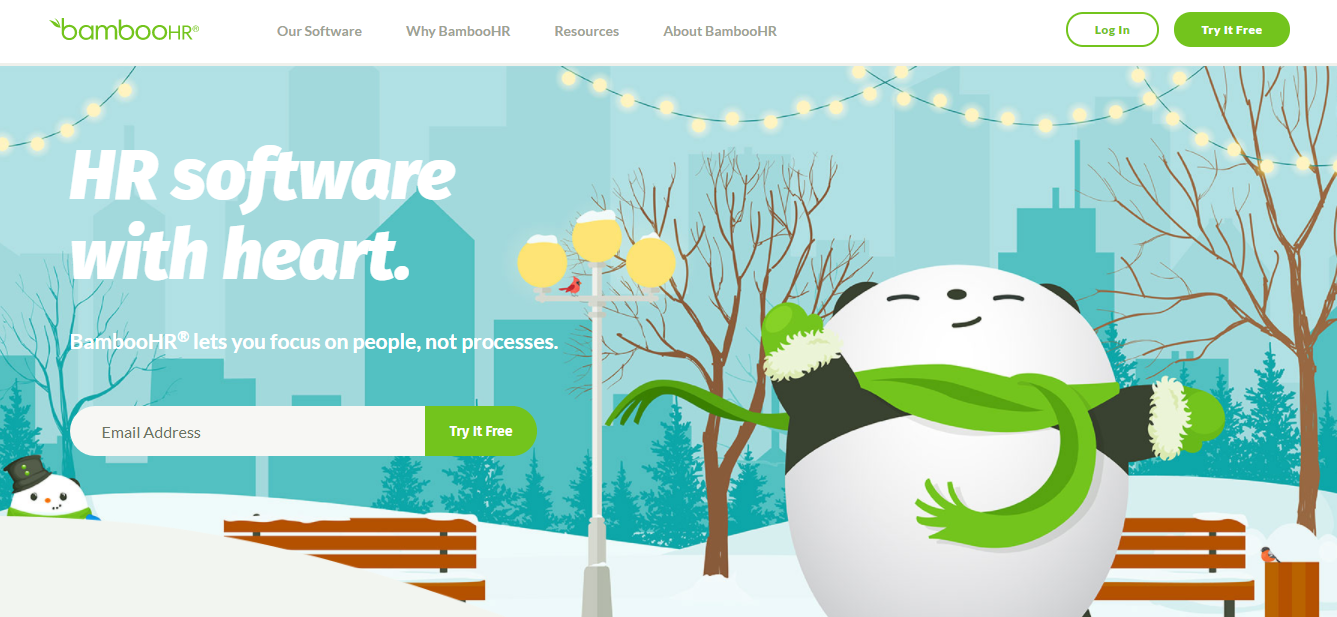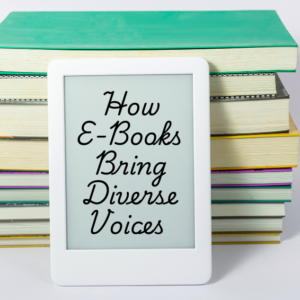When it comes to marketing strategies, people can be mindful of Artificial intelligence (AI), but it is essential that marketers treat AI as an ally and tool that boosts human creativity, intuition, and empathy. Marketers and business executives may harness the power of AI to achieve scalable and efficient results in their marketing initiatives by using AI in digital marketing. Marketers can also devise more efficient methods of targeting potential audiences and connecting with them on a deeper level.
AI powered marketing can save marketing teams significant time by quickly collecting and analyzing data collected via automated methods, freeing them up to focus on more complex tasks such as refining personas or adapting campaigns based on customer insights gathered through AI technology. However, AI remains a relatively novel tool for digital marketers; therefore, teams must use AI responsibly in order to protect consumer privacy while adhering to all regulations pertaining to AI strategies.
Digital marketers often invest a significant amount of time in manually scheduling social media posts and analyzing engagement metrics. AI presents a valuable opportunity to streamline these processes, ultimately saving teams precious time and resources. If you own a business or manage a brand and are keen on leveraging AI for digital marketing, it’s strongly recommended to engage with a top-tier digital marketing agency. Collaborating with SEO professionals can also significantly enhance your marketing endeavors, ultimately helping you elevate your business’s marketing strategy.
How AI is Used in Digital Marketing?
Artificial intelligence can help streamline repetitive, time-consuming, or tedious tasks within digital marketing, such as customer journey tracking across channels. AI for advertising also assists marketers by analyzing data to recognize patterns, establish relationships, and gain insights that enable informed decisions about reaching target audiences more efficiently. It can also be leveraged to analyze consumer behavior and make recommendations that lead to conversions.
AI in digital marketing plays an important role by creating chatbots to interact with customers and potential leads on brand websites, thus increasing customer engagement while providing more tailored user experiences. By employing natural language processing, an AI chatbot can interact with visitors by asking and answering questions and providing details about products or services that might interest customers.
AI can also be used to personalize emails by creating content and subject lines tailored specifically to each recipient and crafting engaging ad copy through chat GPT marketing or optimizing keywords for search engine optimization (SEO). It can also help marketers predict when users may stop engaging with a brand or product and recommend content most likely to persuade them back. It can also identify products most likely to be purchased together, providing cross-selling or upselling opportunities.
Moreover, AI proves instrumental for data analysts by efficiently sifting through vast troves of customer and lead data, uncovering patterns that can shape future marketing campaigns, strategies, and decisions. This empowers Chief Marketing Officers (CMOs) with the confidence to create precisely targeted and personalized content that deeply resonates with their intended audiences. AI aids in predicting customer service outcomes accurately, enabling businesses to meet or exceed their growth targets, aligning with the aspirations of their executive leadership.
AI in digital marketing can also help by automatically notifying us when customers unsubscribe from an email list and automatically removing them from future communications. AI can also identify at-risk consumers and offer special incentives to get them back into brand engagement. It can also detect when and which pages a user visits, enabling more targeted ads that are likely to be successful while decreasing online advertising costs by eliminating unwanted clicks.
Top Benefits of Using AI in Digital Marketing
Using AI in digital marketing offers a wide range of benefits that can significantly enhance a company’s marketing efforts. Here are some key advantages of incorporating AI into your digital marketing strategy:
Personalized Content
Artificial intelligence (AI) presents businesses with a significant opportunity to craft personalized content, resulting in heightened engagement and improved conversion rates. For an eCommerce or retail brand, AI can be harnessed to provide tailored product recommendations, taking into account user behaviors like browsing history or recent purchases. This approach not only boosts sales but also enhances customer satisfaction. In the case of freelancers and digital agency marketers, AI tools can expedite content creation by swiftly generating topic ideas, outlines, and even complete articles for blog posts, thereby enhancing productivity and efficiency.
Employing AI in digital marketing speeds up the creation and enables marketers to focus more on editing and refining than researching and writing from scratch. Brands are leveraging AI language technologies to create automated emails tailored to individual customer behavior, helping reduce customer churn and increase engagement. Creating and delivering personalized content has become super easy with Artificial intelligence in marketing campaigns.
Data-Driven Decisions
Marketing teams dealing with a high volume of content need efficient ways to sift through the data and pinpoint the most valuable insights. Artificial intelligence (AI) offers a solution by thoroughly analyzing various data sources and identifying critical insights that should be prioritized for actionable steps. AI-powered marketing tools and predictive analytics can significantly aid marketers in designing successful marketing campaigns by predicting customer behavior and anticipating responses. This foresight allows marketers to deliver timely, relevant messages that increase the likelihood of conversions, ultimately leading to more effective campaigns.
AI can significantly boost marketing efficiency by automating repetitive tasks. Some agencies use AI-based chat GPT marketing and content-creating tools for data analysis for PPC campaigns, SEO efforts, keyword research, content personalization, copywriting, and ideation efforts – freeing marketers to focus more on strategic planning activities such as customer engagement activities. AI also gives visibility into why decisions were made so marketers know which data factors contributed to an algorithm’s results.
Automation in Marketing
Digital marketing can be time-intensive and challenging, but AI software can assist by automating repetitive tasks to minimize manual labor requirements. AI programs can manage pay-per-click campaigns, analyze keyword research data, and develop effective marketing strategies. AI driven marketing can also aid with content production and provide feedback on how well a product or service is performing, which can be particularly useful in identifying areas for improvement.
AI can greatly enhance advertising campaigns by analyzing customer data and predicting consumer behavior, enabling marketers to craft highly targeted ads that resonate with their target audiences. While AI offers incredible advantages to businesses, its accuracy depends on the business’s understanding of its customers and adherence to data security best practices. Therefore, utilizing this technology should prioritize robust data security measures to ensure ethical and secure usage of customer data.
Dynamic Pricing
While AI may not be universally applicable to every digital marketing activity, its implementation can be incredibly beneficial. AI-powered tools, for example, excel at generating dynamic pricing based on consumer demand by analyzing purchase history, demographics, location trends, and external factors. This data-driven approach helps in formulating the most profitable pricing strategy.
Furthermore, AI can optimize email send-out times by evaluating consumers’ time zones, preferences, and availability. By identifying the best times to send emails, marketers can significantly enhance email engagement and campaign effectiveness. The power of AI lies in its ability to leverage data for more informed and strategic marketing decisions.
It is also useful in retargeting shoppers who have abandoned their shopping carts by emailing a targeted offer or suggesting alternative products that may better meet their needs. AI can also help marketers quickly and efficiently process lead and customer data, enabling them to better understand their audience, spot insights, and make more informed decisions with less wasted time and resources – freeing up staff for other priorities.
Customer Experience
AI can quickly interpret large volumes of data, providing actionable insights and recommendations. AI can also assist your digital marketing strategies in order to maximize results while remaining competitive in an ever-evolving marketplace. If your site experiences high abandonment rates, AI powered marketing tools can analyze the data to pinpoint where the issue lies – page load speed issues, privacy or security issues, lack of payment options, or an incomprehensible checkout process.
Cart abandonment can be reduced, and conversion rates can be improved by making changes accordingly. AI can quickly identify what resonates with your target audience and suggest the optimal channels and times to reach them – for instance, identifying when is best to post promotional content to social media channels – making this technology invaluable in cutting down time-consuming experimentation efforts and saving both effort and expense when it comes to reaching a wider target.
Marketing Idea Generation
AI can assist human marketers by taking over repetitive tasks, freeing them up to focus on other areas of digital marketing. AI is widely used for content generation – AI driven marketing tools can help your team generate new ideas for ad campaigns, personalization efforts, and more. AI can automate tasks like lead scoring and email campaign creation, saving significant amounts of time. However, it should be remembered that AI still relies on human input when making creative and strategic marketing efforts.
AI excels not only in generating fresh marketing ideas but also in streamlining current processes. Take, for instance, the automated application of schema markup to content, a task AI can handle adeptly. By doing so, it helps search engines comprehend the content, saving marketers time and enhancing user experiences.
However, it’s essential to acknowledge that integrating AI may involve gathering more data from leads and customers. This brings forth privacy concerns, underscoring the need for a stringent data management framework to ensure responsible and lawful usage of this data. Balancing the advantages of AI with privacy and data security is a critical consideration for any organization.
Time-Saving Efforts
Automation using artificial intelligence frees time for creative marketing campaigns while decreasing human error risk and creating consistency across campaigns. Demographic targeting utilizes artificial intelligence (AI) to understand your audience’s demographics and create content that resonates with them – this can increase engagement and conversions. This saves marketers a huge amount of time by enabling them to right away execute the best-suited digital marketing strategies for their business.
Moreover, when artificial intelligence and digital marketing are clubbed together, it saves a lot of time and effort for marketing experts. AI can use customer behavior analysis to uncover their interests and suggest products or services that meet these requirements, ultimately increasing customer satisfaction and building brand loyalty. When it comes to tracking performance, finding key metrics, or making recommendations, AI can save time by automating reports and offering insights that will shape your strategy, enabling marketers to focus on creating marketing campaigns with maximum ROI.
Highly Cost Effective Marketing Strategies
AI offers cost savings to businesses by automating manual processes and reducing human error. This, in turn, allows staff to shift their attention to strategic tasks, boosting overall productivity. Marketers benefit from AI as it helps refine targeting, analyze data for more successful campaigns, and improve ROI. Through predictive analytics, AI can anticipate market shifts and adapt strategies accordingly. Additionally, AI enhances attribution models and analyzes the performance of each marketing touchpoint.
Modern consumers expect a level of personalization that goes well beyond their previous experiences, so artificial intelligence (AI) can assist marketers in understanding individual consumer preferences more accurately by using data points such as purchase history, location history, and brand interactions to understand individual consumer trends more deeply. AI in digital marketing can assist in managing pay-per-click campaigns by overseeing research and training processes such as bidding/spending optimization, campaign messaging creation, and keyword research.
Focused SEO
AI tools offer the capability to optimize and evaluate campaigns using the data they analyze, ultimately boosting their effectiveness and return on investment (ROI). However, it’s crucial to emphasize that the decision-making capacity of AI heavily relies on the data it has been trained on. Hence, choosing a platform with demonstrated effectiveness is vital for efficient utilization of this technology.
In the realm of SEO, employing AI can significantly enhance your website’s ranking on the search engine results pages (SERPs) by comprehending the user intent behind each keyword and search query. This becomes increasingly vital given Google’s consideration of page experience in its site ranking algorithms.
Therefore, optimizing content for keywords and user experience has never been more crucial. AI can assist with this effort by producing relevant search results and suggesting optimization suggestions; additionally, it can reoptimize existing content. However, it’s essential to keep in mind that AI may become biased if trained on data with unequal representation for SEO marketing. Therefore, you should perform regular audits on both your AI system and data to detect any bias and avoid it altogether.
Data Analysis
AI-powered tools in business can analyze data to provide marketers with useful insights. AI can aid marketers in making more informed decisions that improve campaign performance – whether this means data entry assistance, text or visual analysis, or optimizing bids based on past behavior – saving both time and money in the process. Many companies use AI to automate marketing tasks and reduce human error. Businesses are now using AI powered marketing platforms to customize content specifically tailored for each customer and increase engagement.
AI also creates ads and marketing content on an extensive scale – this feature is especially helpful to agencies with limited staff resources. However, it’s essential to keep in mind that employing AI requires careful consideration to safeguard the security and privacy of sensitive data. AI may be subject to biases if trained on non-diverse or representative datasets; this can be avoided through carefully designing and implementing AI models. Furthermore, responsible data protection and privacy laws implementation should also be ensured.
Fostered Customer Relationship
Contemporary consumers anticipate personalized marketing messages derived from their prior engagements with a brand. AI marketing tools enable brands to surpass conventional demographic data by collecting detailed, individualized information regarding consumer preferences. This, in turn, facilitates the creation of highly customized experiences and content.
In the realm of nurturing customer relationships, AI assumes a crucial role by furnishing digital marketers with essential assets that can be strategically leveraged for business growth.
Artificial Intelligence can further build customer relationships by quickly making decisions based on large datasets for marketing strategy and ad placement decisions, allowing marketers to effectively target specific audience segments while optimizing ROI. If you are running a business and want to improve your customer experience, reach out to a leading digital marketing company or a reputation management agency for your business now!
AI powered ChatBots
AI chatbots are highly advantageous for both customers and agents, providing 24/7 availability for inquiries and assistance without requiring human intervention. They seamlessly integrate with CRM systems and ecommerce platforms, offering tailored solutions by retrieving customer data. This accessibility aligns with customers’ preferences, ensuring assistance is available at their convenience. Additionally, AI equips digital marketers with predictive analytics and advanced tools, enabling precise identification of customer needs and enhancing the effectiveness of their strategies and campaigns.
Customer service chatbots are one of the most widely utilized uses of AI in digital marketing, as they can handle routine inquiries and assist customers in performing self-service tasks. This frees up human agents so they can focus on more complex or sensitive customer issues – ultimately increasing customer satisfaction and loyalty. However, AI algorithms could unknowingly perpetuate biases present in data they were trained on, so it’s essential that any potential issues be regularly audited and any issues addressed accordingly.
Targeted Ads
AI marketing tools can automate targeted advertising through data-driven algorithms that analyze and determine an audience’s preferences. This may involve ingesting existing customer data to find “look-alikes” or through machine learning algorithms that use pixels to track what types of content a particular user engages with on your website to build up a “data profile.” AI can be an effective asset to digital marketers, providing predictive analytics and advanced tools that allow them to identify customer needs more accurately and plan their targeted advertising campaigns.
In today’s consumer landscape, personalized experiences are paramount. AI marketing tools rise to this challenge by aiding in various tasks, including moderating social media posts, sending precise emails to nurture leads, and perpetually optimizing ad campaigns for peak performance. Leveraging past trends, internal data analysis, and external influences, AI software predicts consumer behaviors. This invaluable insight allows digital marketers to craft highly targeted campaigns, guiding leads through an optimized sales funnel, ultimately maximizing conversions.
Conclusion
When employed strategically, AI driven marketing can significantly boost ROI while making more efficient use of resources, thereby cutting costs significantly. However, setting clear goals and expectations regarding its use should ensure the appropriate technology is selected. AI-powered marketing tools are fast becoming an integral component of CMOs’ arsenals to create targeted, personalized content that resonates with their client base and drives growth.
Artificial intelligence enables digital marketing teams to gain an in-depth understanding of consumers’ ever-evolving wants, confidently create personalized content that resonates, provide predictive customer service, and drive growth that C-suites expect. However, AI alone should not be seen as the solution – AI cannot work miracles! Reach out to a leading digital marketing agency to learn more about how you can work on artificial intelligence and digital marketing together for your business. Good Luck!





